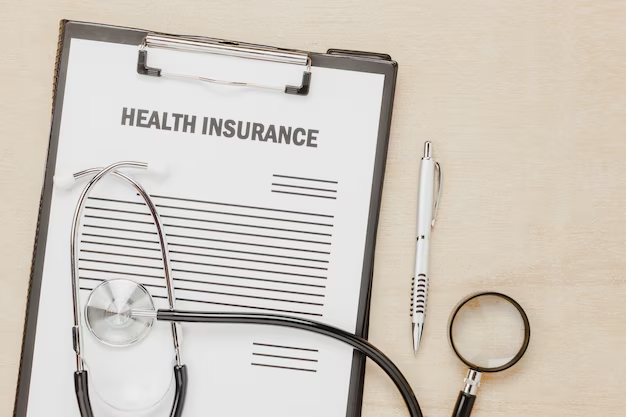How Medical Debt Can Affect Your Credit Report: A Comprehensive Guide
In today's healthcare landscape, understanding medical debt's impact on your credit report is crucial. Many individuals are unaware of how medical bills influence their financial profile, often leading to unnecessary stress and financial consequences. This guide serves as your detailed resource to explore the intersection between medical debt and your credit report, providing insight and clarity to navigate this often-confusing topic.
🩺 Medical Debt: How It Lands on Your Credit Report
What is Medical Debt?
Medical debt arises when individuals receive healthcare services they cannot pay for upfront. It can include expenses from hospitals, laboratories, or physicians' offices. Unlike other types of financial obligations, medical debt can sneak up unexpectedly, and the consequences of unpaid medical bills can extend beyond immediate monetary strain.
Does Medical Debt Appear on Credit Reports?
Yes, medical debt can appear on your credit report. However, it's important to understand the process by which this happens. Typically, healthcare providers do not report outstanding debts directly to credit bureaus. Instead, if a bill remains unpaid, it is often sent to a collection agency. Once in collections, the debt can then be reported to credit bureaus and appear on your credit report as a collection account.
💳 Differentiating Medical Debt from Other Debts
How Medical Debt Differentiates from Traditional Debts
While medical and traditional debts both represent owing money, the genesis and handling of these debts can differ significantly. Credit bureaus and scoring models tend to treat medical debt more leniently than credit card or loan delinquencies. This differentiation is because medical debts often result from uncontrollable, unforeseen events as opposed to voluntary spending.
📉 The Impact of Medical Debt on Your Credit Score
The Big Impact of Small Debts
Even relatively small medical debts sent to collections can negatively impact your credit score. Credit scores are sensitive to collection accounts, and these can remain on your report for several years, potentially hindering your ability to secure loans or favorable interest rates.
Mitigating the Damage
Recent shifts in credit reporting policies have provided some relief. Credit scoring models like FICO and VantageScore have modified their algorithms to reduce the impact of medical collections on credit scores, placing greater weight on other types of debts. Additionally, paid and settled medical debts might be omitted more swiftly from credit reports, depending on the credit agency.
⚖️ Legal Protections and Recent Changes
Consumer Financial Protection Bureau (CFPB) Involvement
Recognizing the unique challenges posed by medical debt, regulatory bodies like the CFPB have advocated for fairer practices in how these debts are reported and handled. Recent developments include longer grace periods before unpaid bills can appear on credit reports, allowing individuals more time to resolve debts directly with healthcare providers.
Recent Amendments in Reporting Strategies
Over the past few years, changes in how medical debt is treated within credit reports have provided consumers with more protection. For instance:
- Delayed Reporting: Medical debts will not appear on credit reports until after a set grace period.
- Paid Collections Removed: Once paid, some medical collection accounts could automatically be removed from credit files.
- Exclusion of Small Debts: Minor medical debts might be omitted entirely from credit reports under certain conditions.
🔄 Strategies for Managing Medical Debt
Proactive Steps to Prevent It
Understanding your insurance coverage and keeping meticulous records of medical bills and payments can prevent medical debts from escalating to collections. Being proactive by:
- Negotiating Bills: Contact healthcare providers to arrange payment plans or request discounts or financial assistance.
- Regularly Review Bills: Dispute errors or discrepancies promptly to avoid unnecessary debts.
Handling a Debt Already in Collections
For debts that have entered collections:
- Request Validation: Always ask for validation of any debt claimed by a collection agency to ensure accuracy.
- Negotiate a Settlement: Many collection agencies are willing to negotiate settlements or payment plans.
- Stay Informed About Your Rights: Familiarize yourself with rights under laws like the Fair Debt Collection Practices Act to protect against overzealous collection practices.
📝 Summary: Key Takeaways on Medical Debt and Credit Reports
- 🕰️ Delayed Impact: Medical debts are usually not reported immediately to credit agencies, providing a window to manage bills.
- 🧾 Validation is Key: Always verify debts before taking action.
- 📉 Credit Score: Be Aware: Even with policy changes, medical debt can still impact your credit score, albeit to a lesser extent compared to other debts.
- ⚖️ Legal Protections Exist: Amendments and legal provisions offer consumers more leverage in handling medical debts.
- 💡 Proactive Communication is Crucial: Engaging directly and promptly with healthcare providers can prevent many credit issues.
Understanding these dynamics can empower you to take necessary actions to curtail or better manage medical debt impacts on your credit report.
Ultimately, staying informed and proactive in managing healthcare expenses is key to minimizing the financial strain of medical debt and its potential impact on your credit report.Employ practical advice, communicate effectively with healthcare providers, and seek assistance where possible to tackle medical debt head-on.
🌟 Closing Insight
Medical debt can feel overwhelming, but knowledge is power. By being proactive, staying informed, and using the available tools and protections, individuals can minimize the impact of medical debt on their financial lives. Education, negotiation, and regular monitoring can transform an intimidating situation into a manageable one, ensuring that medical debt doesn't stand between you and your financial goals.

Related Topics
- Am I Responsible For My Spouse's Medical Debt
- Am I Responsible For My Spouse's Medical Debt After Death
- Can Medical Debt Affect Credit
- Can Medical Debt Affect Your Credit
- Can Medical Debt Affect Your Credit Score
- Can Medical Debt Be Sent To Collections
- Can Medical Debt Garnish Wages
- Can Medical Debt Go On Your Credit Report
- Can Medical Debt Go To Collections
- Can Medical Debt Hurt Your Credit
